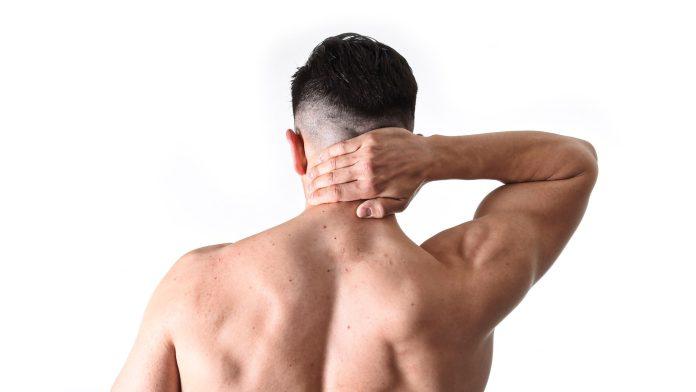Neck pain, often caused by cervical pain or a pinched nerve, can be a common and discomforting condition. While most cases subside within a few days, chronic cervical pain may require more attention. In this comprehensive self-care guide, we will explore simple and easy-to-follow home remedies to help you find relief from symptoms of pinch nerve in neck. Before diving into the remedies, let’s understand the causes of cervical radiculopathy and how to reduce the risk of developing neck pain.
Understand Cervical radiculopathy:
Cervical radiculopathy, commonly known as pinched nerve, can have various underlying causes that contribute to its development. Understanding the causes of pinched nerve in neck is essential in effectively managing and treating the condition.
Herniated Discs: One of the primary causes of cervical radiculopathy is herniated discs. Discs act as cushions between the vertebrae in the spine. When a disc becomes herniated, its inner core protrudes through the outer layer, pressing on nearby nerves. This compression can result in neck pain and radiating symptoms down the arm. Fortunately, many cases of herniated discs can be managed conservatively through non-surgical approaches such as physical therapy, medication, and lifestyle modifications.
Degenerative Discs: Another common cause of pinched nerve in neck is cervical spondylosis, also known as degenerative disc disease. This condition occurs when the discs in the neck region undergo degenerative changes over time. As the discs deteriorate, they lose height, become less flexible, and may develop bone spurs. These changes can lead to nerve compression and subsequent neck pain. Treatment for cervical spondylosis typically involves a combination of medication, physical therapy, and lifestyle adjustments. In more severe cases, surgical intervention may be necessary to alleviate symptoms and restore function.
Degenerative changes in the spine can also contribute to the development of cervical radiculopathy. As the discs age and degenerate, they lose their ability to absorb shock and provide support to the spine. This can result in the narrowing of the spinal canal and the formation of bone spurs, a condition known as spinal stenosis. The narrowing of the spinal canal can put pressure on the nerve roots, leading to neck pain and other associated symptoms. Treatment options for degenerative changes in the spine may include physical therapy, pain medication, and in some cases, surgery to relieve pressure on the nerves.
Precautions to reduce the Risk of Neck Pain:
To minimize the risk of neck pain, it is essential to follow these tips:
- Maintain proper posture, avoiding awkward positions and repetitive movements. Support your lower back and neck by using chairs with adequate backrests and keeping your shoulders relaxed.
- Maintain an ideal weight, as excess weight can strain your neck and contribute to disc degeneration. Adopt a balanced diet, reducing calorie intake, and incorporating regular exercise into your routine.
Home Remedies to Cure Neck Pain:
When it comes to fast and effective relief from neck pain at home, consider the following pinched nerve in neck treatment options:
Cervical Collars:
Cervical collars are recommended as part of an overall management approach, which may include physical therapy. These collars provide support and help improve mobility. However, caution should be exercised, especially if you have metal implants under your skin.
Massage Therapy:
Practice self-massage at home using massage devices or wands. Massage helps relax the inflamed nerve and reduces pain. Gentle, circular motions applied to the affected area can provide soothing relief.
Over-the-Counter Medications:
Over-the-counter pain relievers such as ibuprofen and naproxen can help temporarily alleviate nerve irritation and inflammation. These medications can provide relief, but it’s essential to follow the recommended dosage guidelines.
Corticosteroid Injections:
In severe cases, corticosteroid injections may be considered to reduce swelling around the affected nerve. This option should be discussed with a healthcare professional and administered by a qualified medical practitioner.
Bottom Line:
Neck pain, often caused by cervical pain or a pinched nerve, can be effectively managed with simple pinched nerve in neck home treatment options. By maintaining good posture, managing weight, and incorporating self-care practices like massage therapy, you can find relief from neck pain. However, it’s important to consult a healthcare professional if your pain persists or worsens. Remember, early intervention is key to addressing cervical pain effectively and improving your overall well-being.
